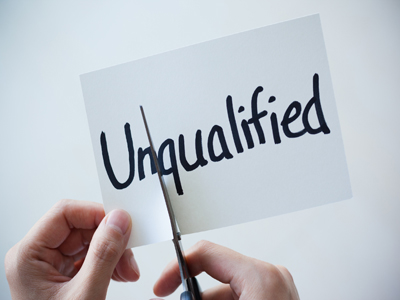Being prepared when potential buyers contact you about your business for sale is a good idea. Too many sellers (and brokers) are unprepared & miss good opportunities or get involved with unqualified buyers. This Discussion post and answers from ProIntermediaries on BizBen assist with this issue.

Comments & Feedback From Pro Intermediaries & Pro Advisors On BizBen:

 As a broker, I like to mainly see from the buyer, a) evidence of funds, b) a statement of assets and liabilities, c) a credit report and FICO score. These 3 things are of importance, because I need to see that they actually have the money to close the transaction, and also I know these are the items a landlord will want to see, so that we can properly transfer the lease. I require these items during the negotiation process of an offer.
As a broker, I like to mainly see from the buyer, a) evidence of funds, b) a statement of assets and liabilities, c) a credit report and FICO score. These 3 things are of importance, because I need to see that they actually have the money to close the transaction, and also I know these are the items a landlord will want to see, so that we can properly transfer the lease. I require these items during the negotiation process of an offer.




 Thank you for your excellent question.
Thank you for your excellent question. Two things are essential: a strict, no-nonsense, non-disclosure (confidentiality) agreement, and financial information. We incorporate both elements into one document, and the prospective buyer's willingness to fill out the form indicates the seriousness of their interest in and ability to buy the business.
Two things are essential: a strict, no-nonsense, non-disclosure (confidentiality) agreement, and financial information. We incorporate both elements into one document, and the prospective buyer's willingness to fill out the form indicates the seriousness of their interest in and ability to buy the business.